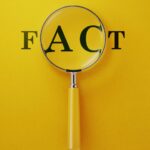Library Resources for Enhancing Your Information Literacy Skills
With information at our fingertips, developing strong information literacy skills is more critical than ever. These skills help you locate, evaluate, and effectively use the information you encounter daily, whether for academic research, personal knowledge, or staying informed about current events. School and public libraries are treasure troves of resources that can guide you in enhancing your information literacy. Below, we highlight some key resources you can find in your library to build and strengthen your ability to navigate the vast world of information.
1. Databases and Online Journals
Libraries offer access to high-quality, trustworthy databases and online journals that provide vetted, peer-reviewed information across various subjects. Unlike a Google search, which might lead to unreliable or biased sources, library databases like EBSCOhost, Gale, or JSTOR filter content to include only reliable academic materials. These databases help you find accurate information for research papers, projects, or personal inquiry, allowing you to distinguish between credible sources and misinformation.
2. Digital Literacy and Media Bias Workshops
Many libraries offer workshops or instructional sessions on digital literacy and media bias. These workshops teach you to recognize credible sources, spot misinformation, and evaluate news for bias or hidden agendas. Improving these skills is crucial, especially in the age of social media, where misleading or fake news can spread quickly. Libraries often host guest speakers or expert-led sessions that help you critically assess information before accepting it as fact.
3. Research Guides
Librarians curate research guides (often LibGuides) that compile the best resources on a specific topic. These guides often include links to credible databases, recommended books, articles, and tips on evaluating sources. Whether researching climate change, media literacy, or local history, these guides provide a starting point to ensure that you use accurate, up-to-date information.
4. Access to Credible News Sources
Many libraries offer free access to digital news subscriptions like The New York Times, The Washington Post, or Wall Street Journal. These are invaluable tools for anyone staying informed through reliable, factual reporting. With access to these sources, you can read and compare different perspectives, deepening your understanding of current events and sharpening your critical thinking about media coverage.
5. Citation Tools
Knowing how to cite sources properly is an essential part of information literacy. Libraries provide access to tools like NoodleTools, EasyBib, or Zotero that help you generate accurate citations in various formats (APA, MLA, Chicago, etc.). These tools ensure that you’re crediting original authors and not falling into the plagiarism trap.
6. Librarian Assistance
The most valuable resource a library offers is its librarians! Librarians are trained to help you navigate complex research questions and can guide you to the best sources for your information needs. Whether you’re struggling to find reliable data, need help developing a research strategy, or want guidance on evaluating sources, librarians are your go-to experts for enhancing your information literacy skills.
7. Books and eBooks on Critical Thinking and Media Literacy
Your library’s collection likely includes books that focus on critical thinking, information literacy, and understanding media. Titles such as The Information Diet by Clay Johnson and Media Literacy by W. James Potter can provide insights into how we consume and interpret information. These resources can offer the tools to build strong habits for processing and filtering the information you encounter daily.
8. Interlibrary Loan Programs
If your local library doesn’t have the resources you need, an interlibrary loan program can help. Through these programs, you can access books, articles, and research materials from other libraries, ensuring access to a wide range of reliable sources. Expanding your reach beyond your local library can significantly enhance your ability to find and use high-quality information.
9. Fact-Checking Websites
Some libraries partner with or recommend fact-checking websites like Snopes, FactCheck.org, or PolitiFact. These platforms are designed to help users verify the accuracy of information they encounter online. Using fact-checking websites, you can cross-reference claims, ensuring that the news or social media posts you’re reading are backed by evidence.
10. Educational Platforms
Platforms like LinkedIn Learning and GCFGlobal are often available through library memberships and provide courses on various topics, including information literacy, digital literacy, and media evaluation. These self-paced courses help you strengthen your skills and learn practical techniques for sifting through information with a critical eye.
Conclusion
Your school or public library is a gateway to a wealth of tools and resources that can help you enhance your information literacy skills. By taking advantage of databases, workshops, research guides, and librarian expertise, you’ll be well-equipped to navigate the complex world of information, make informed decisions, and become a more critical media consumer.
Whether you’re a student, a professional, or someone looking to sharpen your research skills, libraries provide the support you need to master information literacy. Dive into your local library’s resources today and start your journey toward becoming a more informed and thoughtful researcher!



